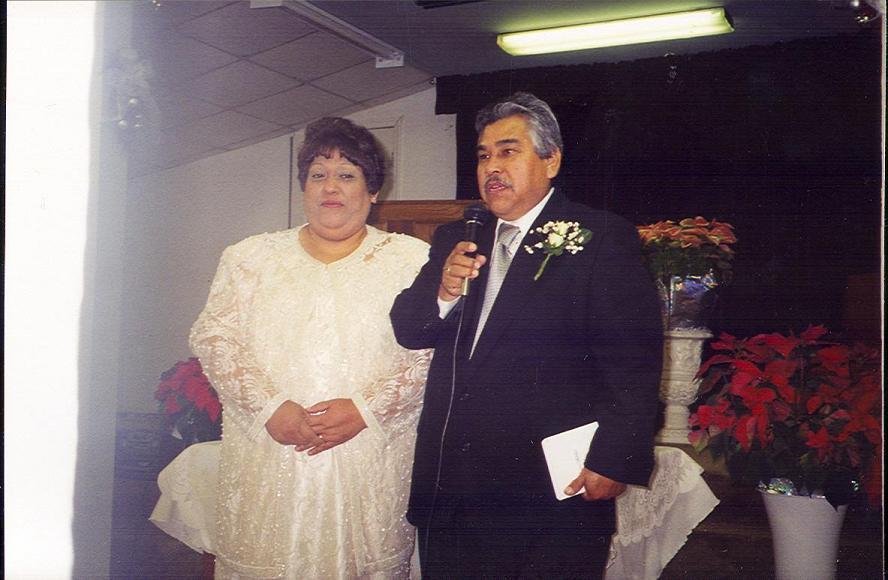TRANSCRIPTION
What is your full name?
Alma Rosa Hernandez Molina
Where were you born?
Nueva Rosita, Coahuila Mex.
My dad told me that there used to be an old Rosita and that it began sinking the houses down so they started building houses higher and that is how they named the town Nueve Rosita.
What are your parent's names?
Juan Hernandez died of a stroke in 2001 and Maria Macias died of diabetes in 1994
How many brothers and sisters do you have?
3, 2 sisters and 1 brother
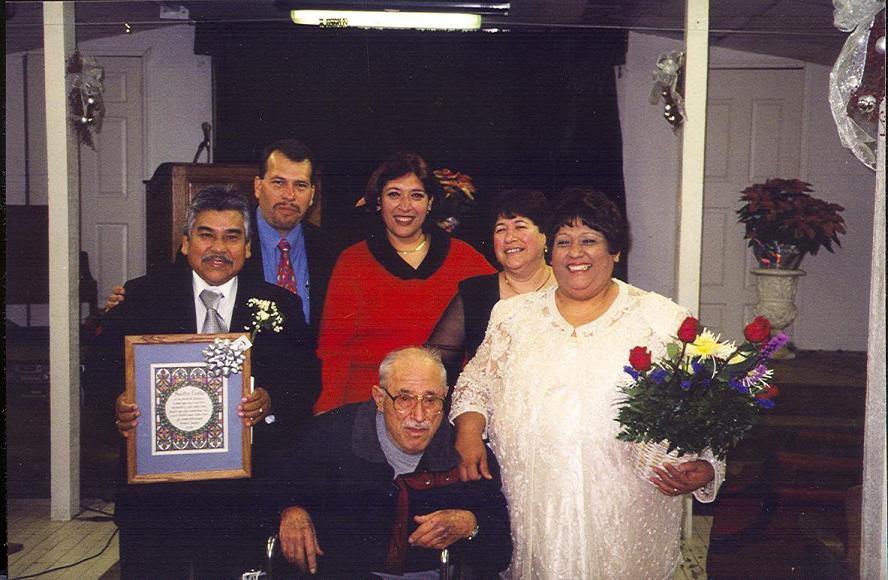
How many children do you have?
1 daughter her name is MariAlma she was born in 1976
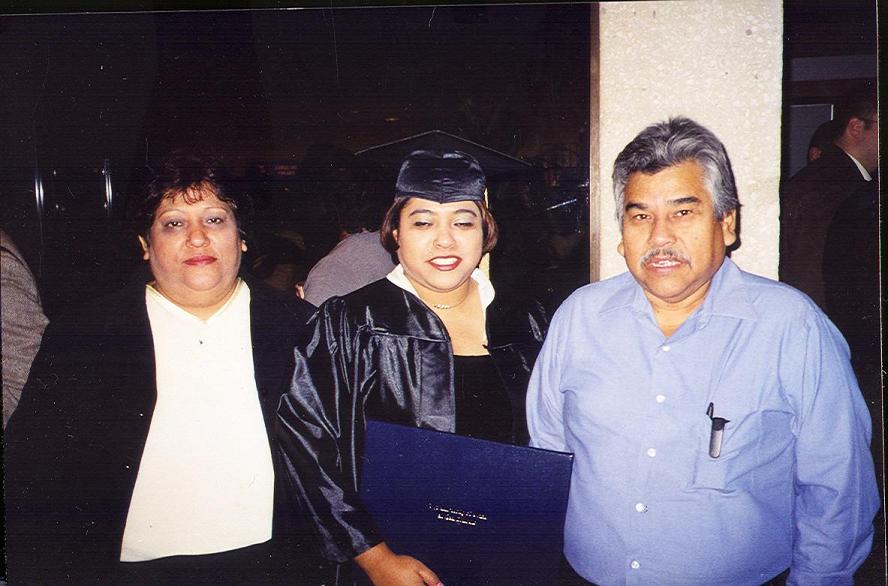
What are your hobbies?
I like to read
What school did you attend?
In Piedras Negras Coahuila Mexico it was called Fausto Z. Martinez
About how much did you pay for school back then?
About 350 pesos for month and I went 4 years in a row, which is probably about 35 dollars in the US.
What was your career?
Social Worker
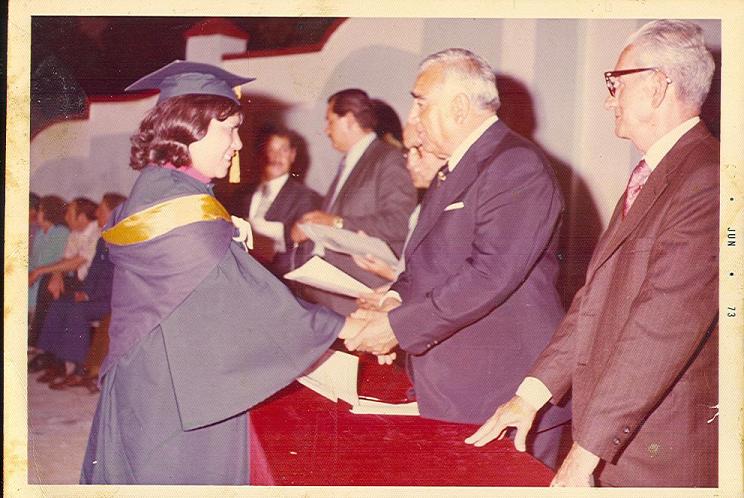
How many graduated with you?
There were only five people that graduated with the social worker career- one guy and four girls. Since that career was new and not that many girls took the opportunity to go to school I think that is why there were so little people graduating. My father would not let me go to school at first because he wanted my brother to go to school. He said that the women are to be maintained by their husband. I kept trying and never gave up. He finally gave in and paid for my first semester in college I never knew where he got the money but I'm guessing he probably got a loan.
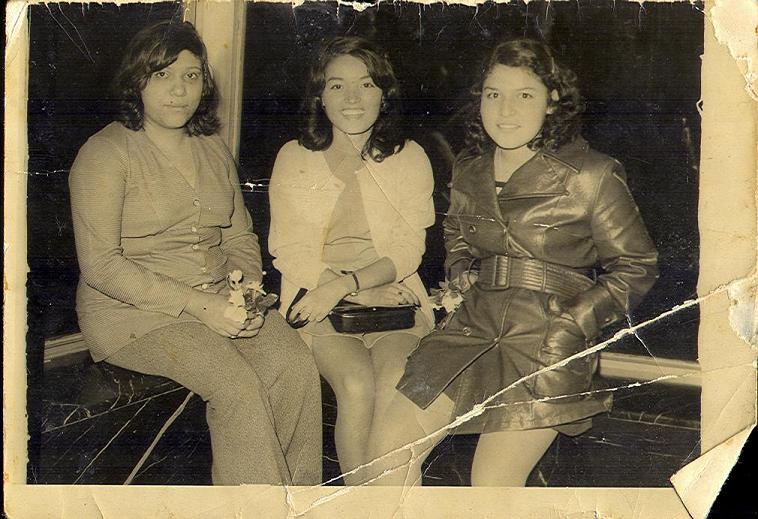
"We went to D.F where we stayed with my mom's friend and her daughter (right), We got a job in 3 months."
Were you able to find a job as soon as you got to San Antonio?
Yes. It was a lot easier to find a job back then because they would hire instantly specially in restaurants and factories. It was super easy to find a job.
What year did you meet Baldemar?
In 1970 in Piedras Negras, I went to visit his family to let me stay there.
In what year did you marry?
In 1975 the second time I went to Piedras Negras, we married in Nueva Rosita at my house.
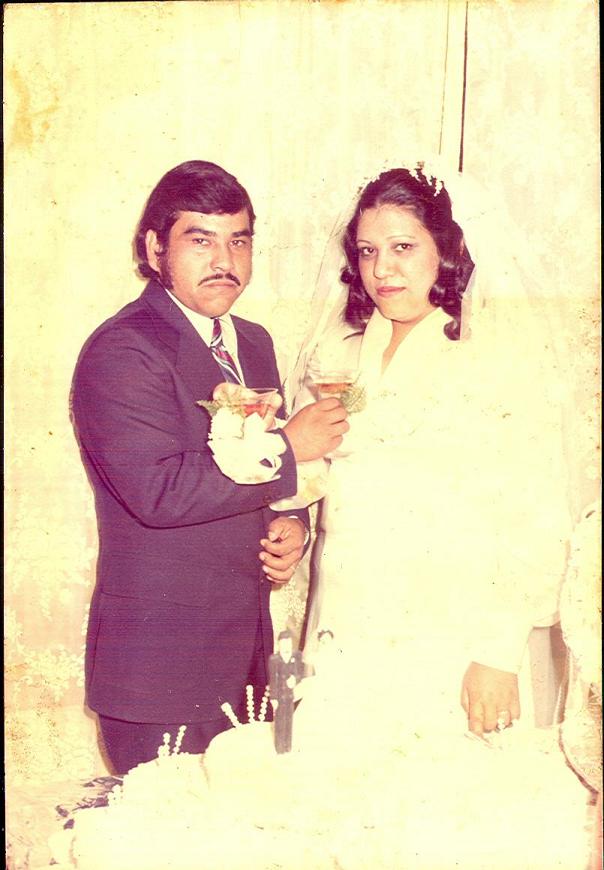
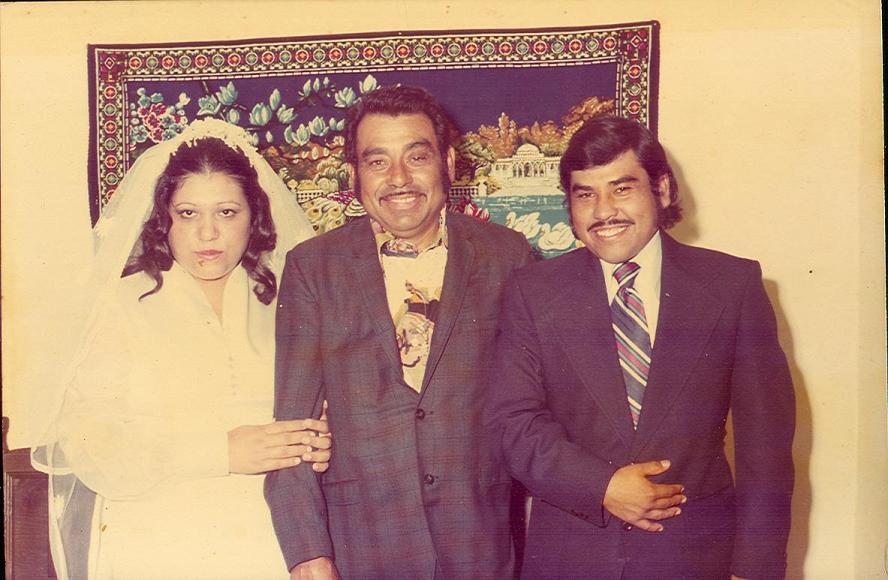
Where have you lived your entire life?
I lived in Nueva Rosita since I was born until I was 14 years old then I moved to Piedras Negras to study for 4 years then to Distrito Federal for 1 year then I went to Piedras Negras for 1 year and finally I came to San Antonio and I've been here for 26 years.
How many houses have you lived in at San Antonio?
I lived in a small house for a couple of months then we moved to a bigger house for a year then we moved to the one we live in now and we bought it.
Where do you work?
Soft touch home care
What do you do there?
I care for an elder lady.
How long have you worked there?
8 years
Where did you work before?
I worked at a rehabilitation center for 4 years.
What did you do for fun when you were younger?
I worked when I was eleven helping my neighbor, who was a teacher, take care of her children in the morning while she went to school and teach. After she came back I would go to "la secundaria" (middle school). In Mexico we have to pay for school after elementary. My neighbor paid for my school because I took care of her kids.
Why did you leave your daughter for 3 and half years?
It cost me my life and suppuration .My daughter stayed with my parents while I was studying in Piedras Negras and my husband was working there too. We would go visit her every weekend, we spent lots of money living like that because we had to send my parents money for diapers and baby stuff. When my husband lost his job we had the choice to either live our lives separated or move to San Antonio for a better life style.
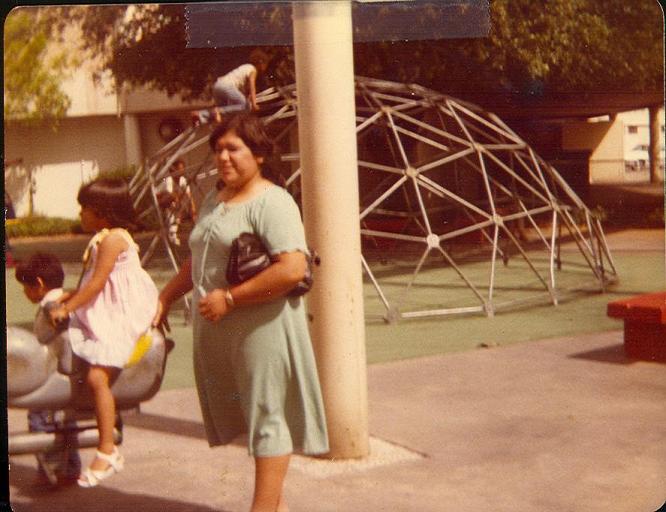
How did you become an American resident?
With the 1987 Amnesty
What was it like when your parents died?
I took care of my mom for 12 years and after she died .I took care of my dad for 5 years. It took a lot of responsibility for them. My brother, my sisters and I took turns taking care of them. I stayed in Mexico for many weeks even months. When my parents died there was peace at home. We all felt rested.
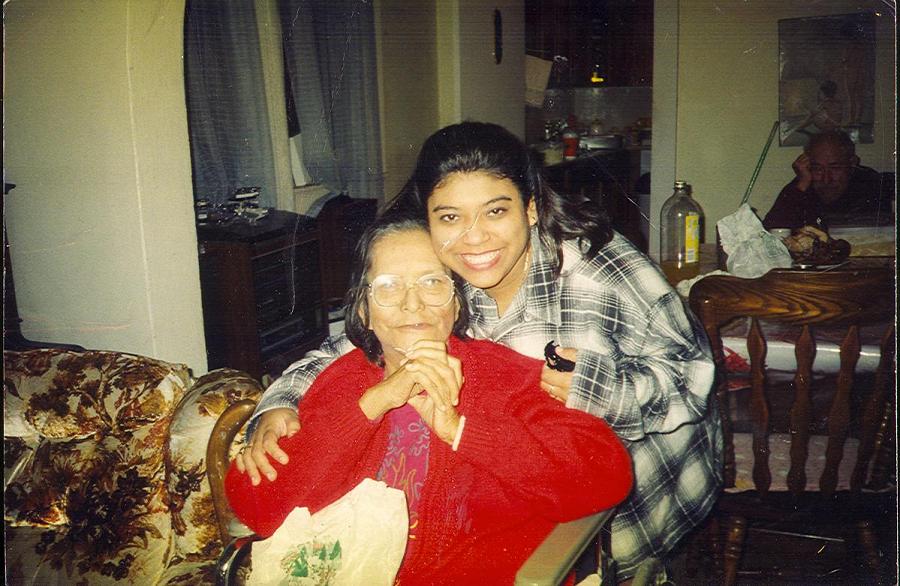
What has been the biggest change that you have noticed in society?
The youth from now is more aggressive there is less hunger in the world, there's more violence. I used to go to parks and outside of my house, but now it changed because a lot of the violence. There is more technology; even though I studied I stayed behind on the technology because of the change. Do you remember the Flintstones? They have all that technology and that's how I view the world now. (Laughs)
Is there anything else you would like to add to this interview?
My husband and I were talking the other day about how there is so much youth that just throw their lives away now a day. Once they finish school they want to work right away and they have so many opportunities with school that weren't available back then. They should take the opportunity that life offers. I don't know if they need to suffer to make better choices in life. You don't need to work to go to school because there are so many loans available for school so you can focus on studies. Everything is offered here and the world is in your hands and you don't even know it.
